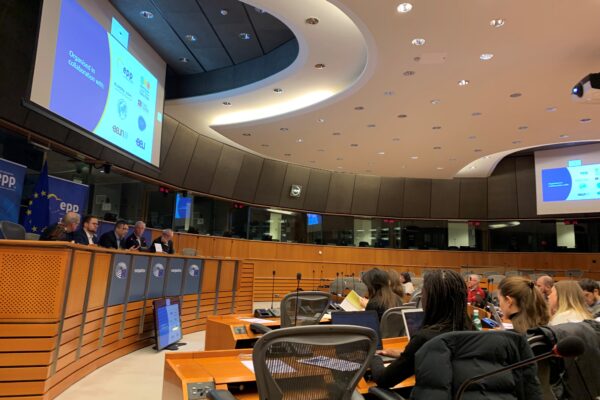Europa Uomo and other organisations push to raise European Commission awareness
Urinary problems can have a major impact on the quality of life of those living with prostate and bladder cancer, creating physical and psychological challenges. Yet, although incontinence can be treated successfully in most patients, incontinence pads are usually the only solution offered because of lack of clinical knowledge and motivation from caregivers.
This is a key message from a new report from the European Association of Urology (EAU), Europa Uomo and other collaborators. It provides detailed recommendations to the European Commission and the EU Beating Cancer plan about how to address the problem effectively and sustainably.
The report draws extensively on the findings of Europa Uomo’s EUPROMS study, which found that 17% of men treated for prostate cancer judged urinary control to be a major or moderate problem, and that half of men who had a prostatectomy were using incontinence pads.
It calls for the new European Cancer Patient Digital Centre to include patient reported outcomes, and for the issues identified in EUPROMS to be monitored and addressed.
The report was launched at an event in the European Parliament in Brussels on Wednesday (pictured), raising awareness of the impact on urinary problems on cancer patients and their families, and the practical and environmental challenges posed by the use of pads.
It was hosted by MEP Tomislav Sokol. Europa Uomo’s André Deschamps gave a presentation on the results of the EUPROMS study. Speakers from Associazione PaLiNUro, World Federation of Incontinence and Pelvic Problems (WFIPP) and Eurocarers also provided patient and carer perspectives.
Paolo Guglielmetti from the European Commission’s public health directorate presented the Commission’s updated recommendations on early detection. He said the addition of prostate cancer to recommended screening programmes has already been backed up with EU4Health funding to start pilots and develop guidelines.
The report and event were a collaboration between EAU, Europa Uomo, the World Bladder Cancer Patient Coalition, WFIPP, the European Cancer Organisation and Eurocarers.
“The aim was to put incontinence on the EU agenda,” says André Deschamps. “The idea was born more than a year ago when we realised that the problem of incontinence was bigger than prostate cancer alone. EAU brought all the parties together which led to the report and finally the meeting.”
